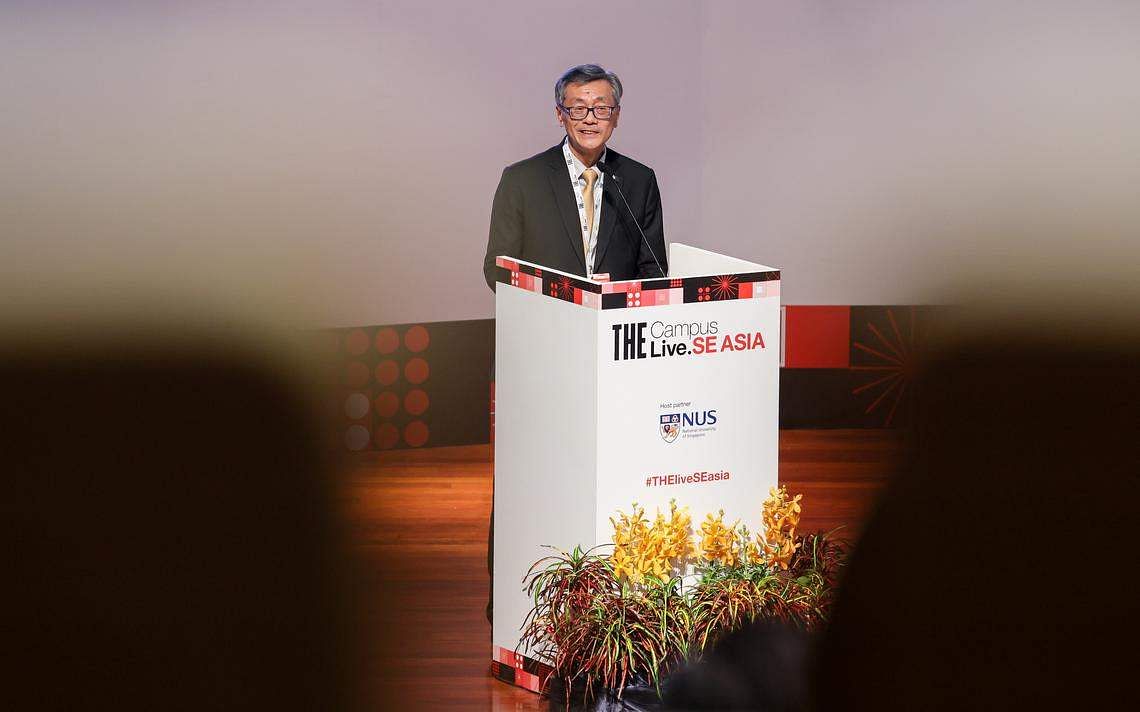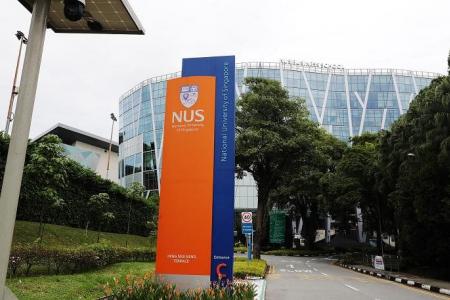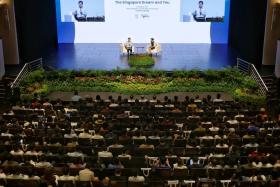Some of NUS master’s degrees will be entirely self-funded: University’s president
Some master’s degrees at the National University of Singapore (NUS) will soon be fully self-funded, and will not receive government subsidies, said its president Tan Eng Chye on Wednesday.
Speaking during a panel discussion at an event held at NUS’ University Town in Kent Ridge, he said this means that for these courses, the university would be able to charge tuition fees comparable to those billed by overseas institutions, and this would then be a revenue source.
He was responding to a question by Times Higher Education’s chief knowledge officer Phil Baty about how universities maintain financial stability and diversify their incomes.
Professor Tan said: “Capitalising on NUS’ brand, in the last few years, instead of having the Ministry of Education sponsor our master’s courses, we have actually made all these master’s courses into a self-funding model. So basically, we are not getting any subsidy for master’s programmes and we are doing it on a self-sustaining basis.”
He was referring to coursework-based programmes, which are designed for university graduates who want to advance their knowledge in chosen specialisations through courses and electives.
In response to queries, an NUS spokesman said: “The majority of master’s degree (coursework) programmes at NUS are currently on a self-funded model. The move towards a self-funded model began in 2020, and will be completed by 2024. Selected programmes will continue to receive subsidies.”
The Straits Times has contacted NUS for more details on the fee changes and whether there are subsidy schemes that Singaporean students can tap for master’s programmes.
Government funding to the University of Malaya was cut by 15 per cent in 2022 – the highest in the institution’s history, he noted.
“With the challenges, we had to get more creative. We all have to do more income-generation work, go out there to raise more donations and endowments, be more prudent in spending,” he added.
The two-day event, organised by Times Higher Education and hosted by NUS, brought together nearly 300 delegates from around the world to discuss issues such as innovation in the higher education sector.
On Wednesday, the first day of the event, Prof Tan said that in the next three years, NUS will be converting face-to-face lectures for large courses with 100 or more students into online lectures.

As part of this exercise, which will involve about 800 courses, students will watch online videos that could be 15 minutes long, interspersed with online assessments.
Physical tutorials will remain in groups of not more than 25 students, Prof Tan said.
An NUS spokesman said in response to queries that this process of rolling out blended learning started in 2021 for undergraduate teaching, with the aim of improving learning outcomes for students.
“We think that it’s useful to have access to content online, but we want to reinforce it with tutorials or small-group discussions,” added Prof Tan.
“It makes it very convenient – whether you are a mature learner or undergraduate student – you can make use of your time when you’re travelling on the bus or train, to watch (the videos) and learn.”
“Our usual way of delivering content needs to change, because our students are different, the way that our students learn is different,” he said.
Get The New Paper on your phone with the free TNP app. Download from the Apple App Store or Google Play Store now


